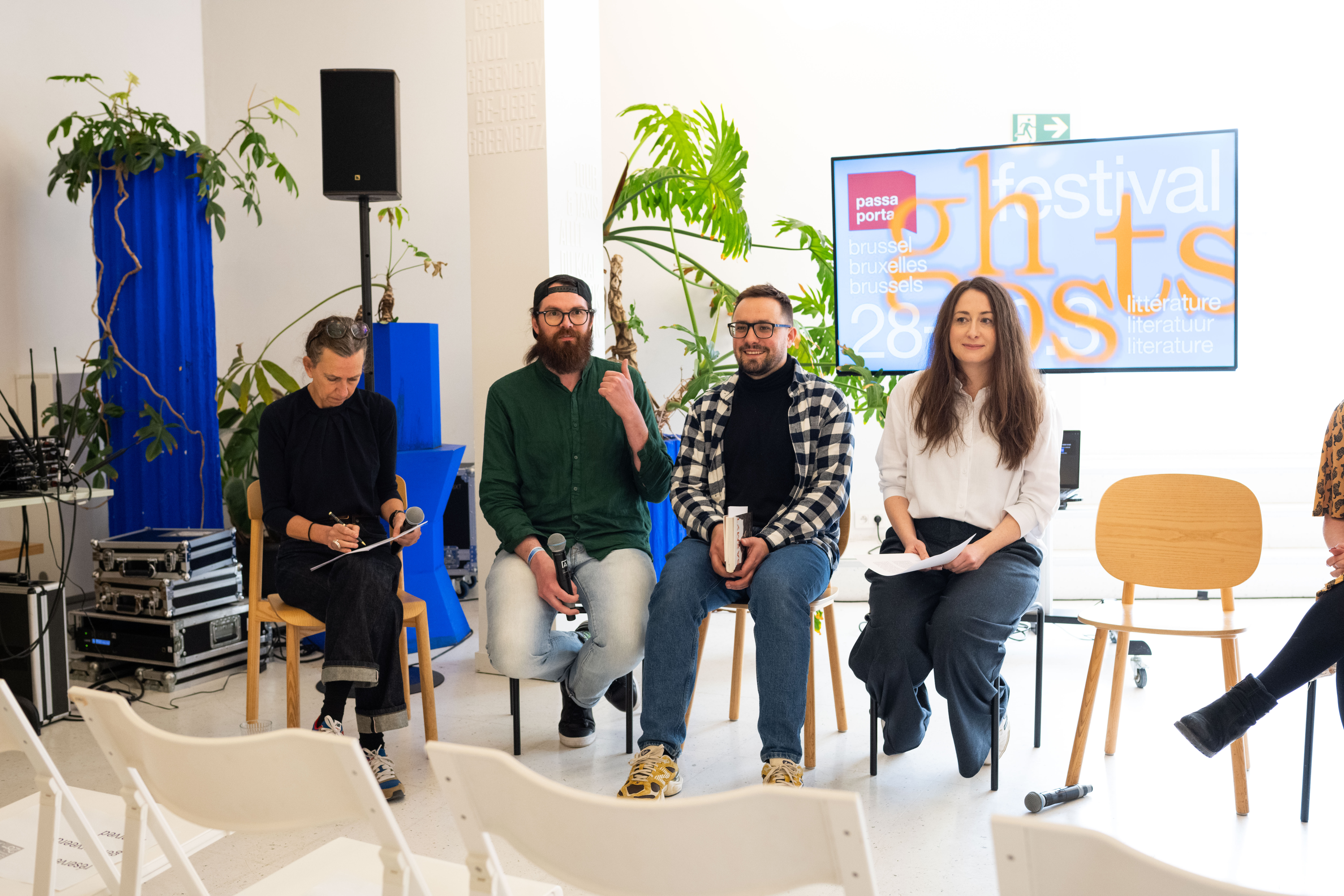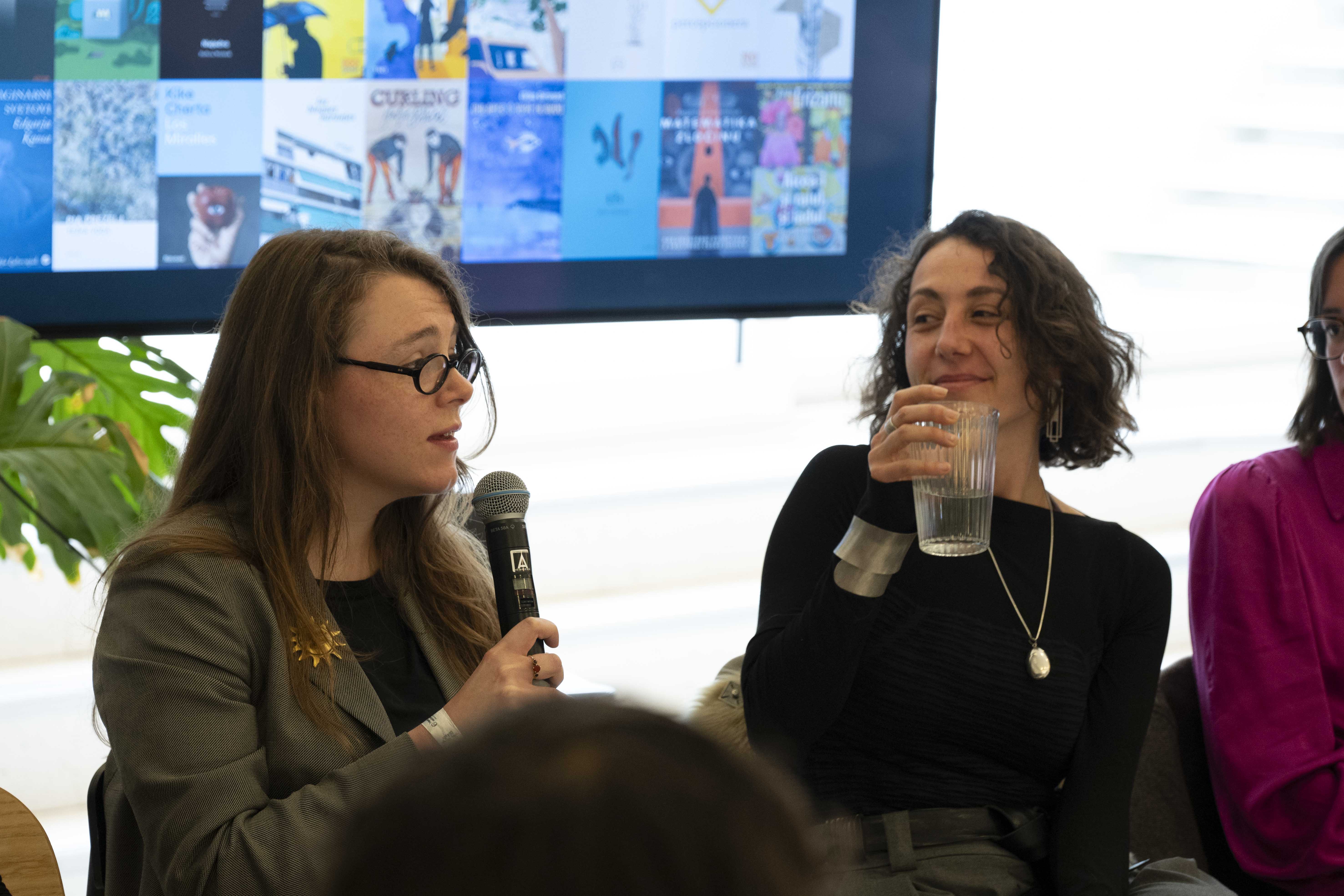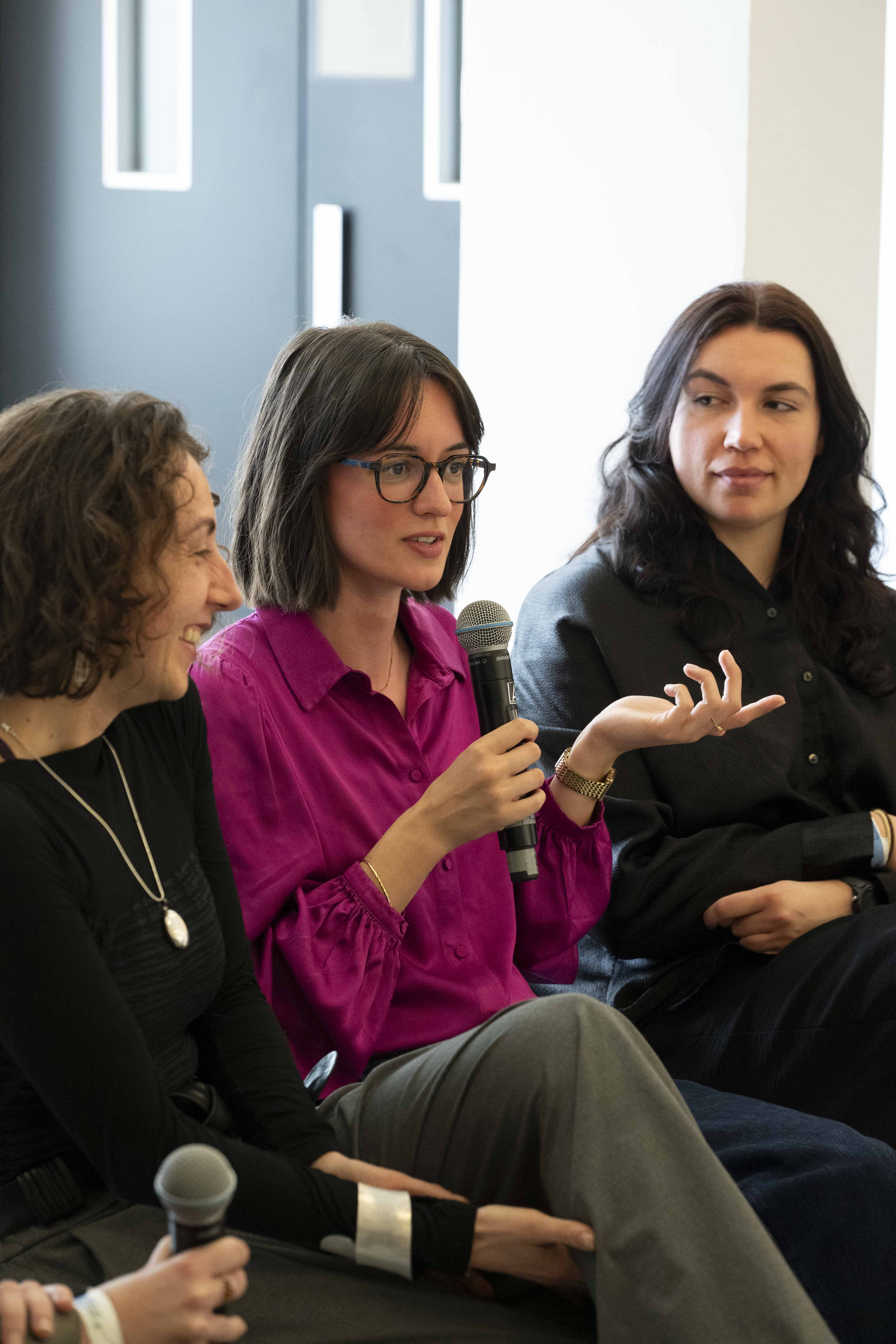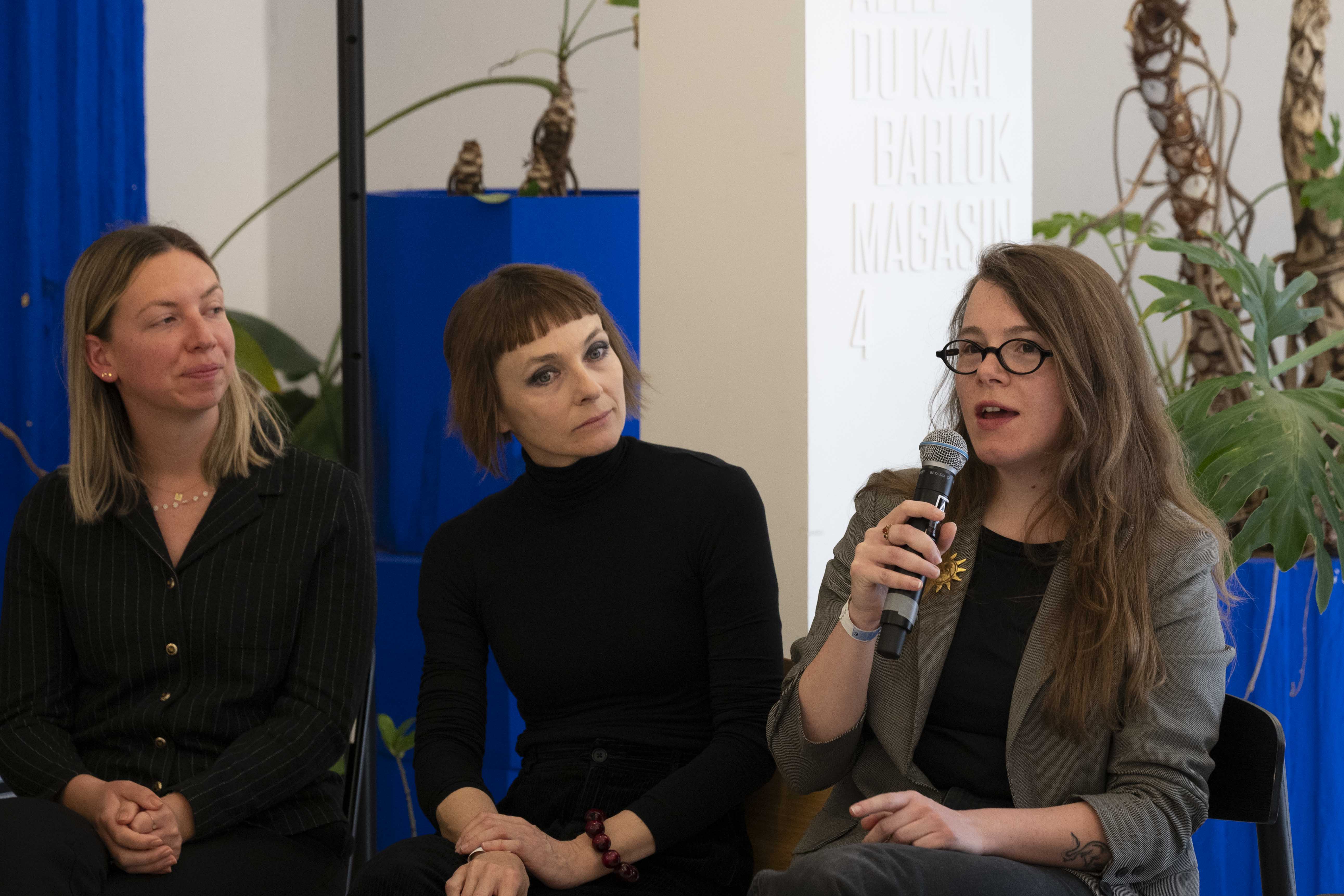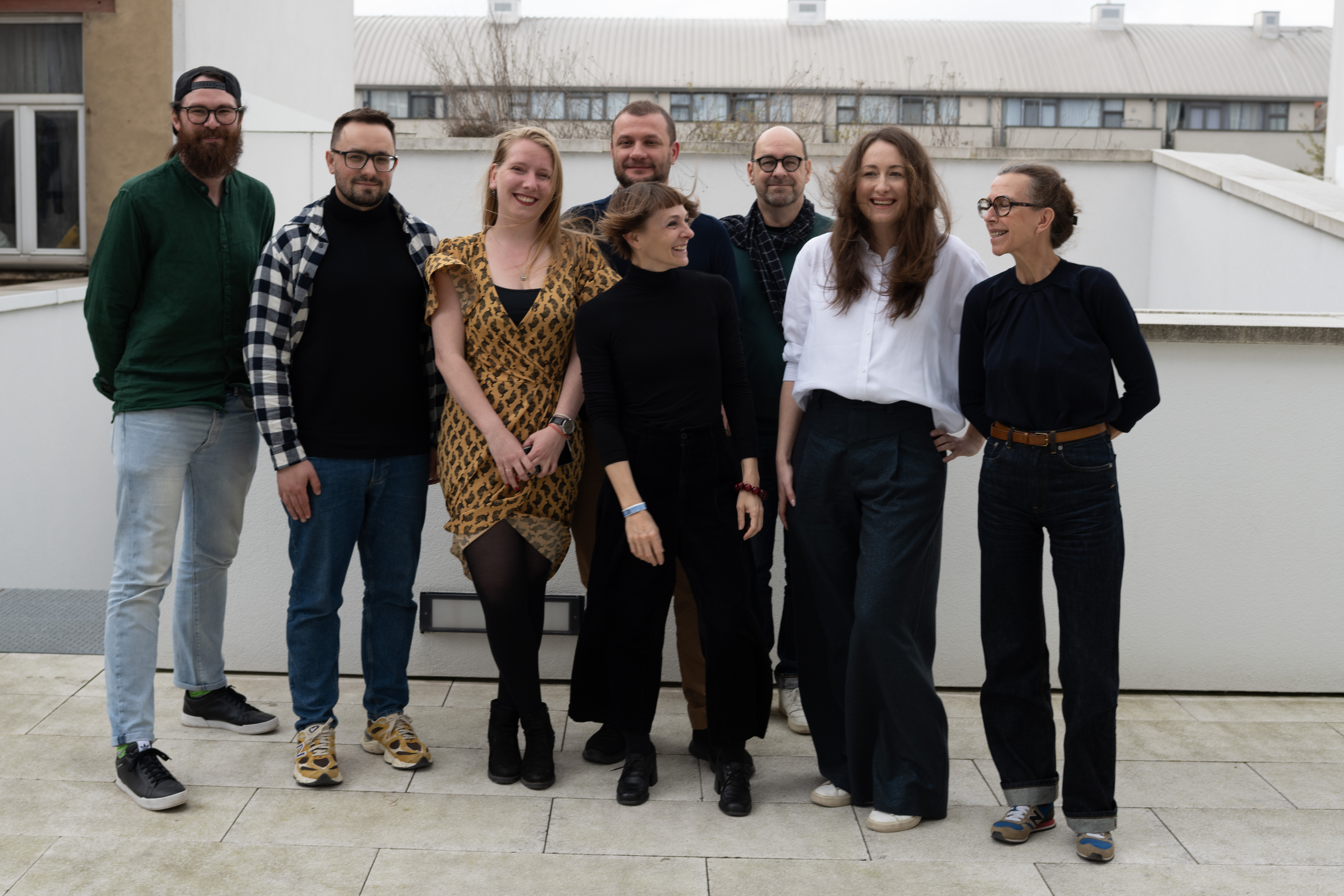Passa Porta Festival in Brussels – by Charlotte van Rooden (translator RO – NL)
On the Sunday morning of the Passa Porta festival Lena van Tijen and I are hurrying down the empty and sunny streets of Brussels to get to the preparatory meeting of the Translator’s Café. We’re late, it’s my fault, and I confidently open the door of the building, when I am greeted by a tall man with a broad smile. We see a room packed with older citizens, who are positively beaming at us.
‘First time?’ he asks me, while he enthusiastically shakes my hand.
‘Yes, no,’ I stammer, ‘what do you mean? We’re here for the festival event.’
‘I see, well, then you’re in the wrong place,’ he says, ‘this is the church.’
We smile politely and apologetically and quickly make our way back out and into the next door. In the MAD-building most of our fellow CELA-translators are already chatting with our Project Manager, Piet Joostens, happy to be reunited after the two months that passed since our last meeting in Turin. Our team consists of nine Dutch and Flemish translators and we share a love for linguistics and literature. As all of us work with different languages and cultures, we have a broad perspective to offer on taking stories from one place to the next. At the Translator’s Café we got the chance to share our experiences from these different contexts and the choices we make when we are put in front of dilemma’s, take a wrong turn or find an unexpected solution. It turns out that as a literary translator, you can end up in unforeseen places.
First of all, many of us never planned on translating literature, but ended up here because we wanted to share stories we discovered in our source language, but that our Dutch speaking friends could not read, or because we ‘wanted more than anything to read books for a living’ or because we, like our translator Ukrainian-Dutch Roman Nesterenco, felt a calling to bring urgent stories for the turbulent times we live in, across borders and to a greater readership.
We are not used to sitting on a stage, as we did in Brussels. Someone mentioned the cliché that the work of a translator is solitary and sometimes isolating, sitting at home with our dictionaries, behind the faint glow of our laptop, struggling (and sometimes suffering) in silence. This is partly true, and the cliché connects us in a way. But translators travel too – through the worlds in our books we need to visualize in order to paint them in our own language, and also literally throughout Europe, to submerge ourselves in our source language and visit fellow travellers, friends and colleagues abroad, to do research or to speak about our work.
In my experience, one of the most rewarding ways to travel as a translator is to see the places you’ve imagined, visualised and painted in a translation. My desire to see the background of the debut novel of Iulian Bocai, one of the Romanian CELA-writers, led us to actually swim in the broad and threatening river Olt, in which some of his fictional characters find a watery death in the very first chapter, close to a small Oltenian village and a hydropower plant. Back then, we didn’t have a clue we would later end up travelling to Turin and Brussels for CELA, although if I remember correctly, I did suggest that he could also apply for the program at that very river bank, while getting hopelessly sunburnt.
For the Passa Porta festival 2025, three CELA-writers travelled to Brussels to present their work to the Dutch public. Although his trip to Brussels had been planned for months, Ukrainian writer and poet Myroslav Laiuk wasn’t sure whether he would be able to participate until a few hours before his train left Kyiv, because he didn’t get state permission to leave the country until the very last moment. Just the day before, he had still been in a war zone.
At the event ‘New Eastern European Voices’, Polish writer Marta Hermanowicz, Myroslav, and Iulian were asked to read fragments from their CELA texts in the original language to the audience in Brussels, while the Dutch translations (by Małgosia Briefjes, Roman Nesterenco, and myself) were projected on a screen behind them. Thanks to these translations and of course the CELA program in general, their stories have now travelled to Brussels, albeit – for the moment – only for a short introduction. Hopefully, the writers and their characters will travel on with us.
Being translated is probably one of the biggest dreams of a writer, hard to obtain and difficult to predict, but the actual magic of seeing a book travel across borders is to see how a new readership will react to the story. And will the readers in the new language see the same qualities in the book as the translators that put so much work in making it accessible to them, by battling cultural differences and linguistic conundrums?
After the festival, most international guests had to stay for another two days, in a kind of sunny Belgian limbo, because all flights out of Brussels on Monday were cancelled due to a strike. Myroslav travelled on to Amsterdam, Marta walked for hours to see the Atomium, Iulian visited Leuven to see a friend. I worked and walked around in Brussels and wondered about the statues of the writhing (maybe God-fearing?) animals next to St-Katelijnekerk.
The CELA-project offers us the opportunity to keep travelling, expanding our network and promoting our work in new, unforeseen places. Although I am sad to have disappointed the Protestant Church community in the building next to MAD Brussels (I suppose they were happy to see two young women burst into their hallway), I am very glad our diverse translator’s and writer’s community got the chance to (re-)connect in Brussels.
